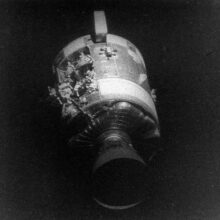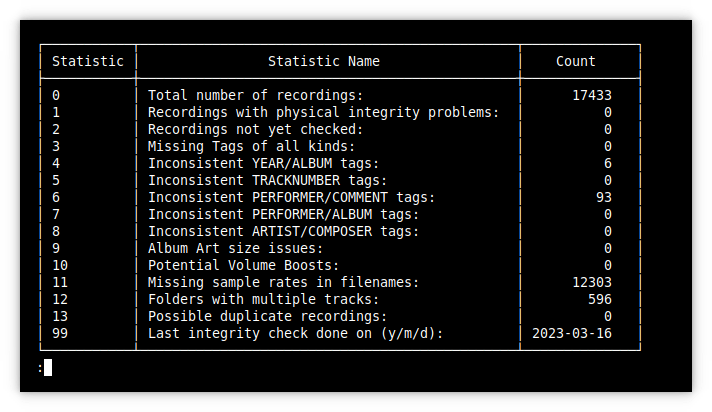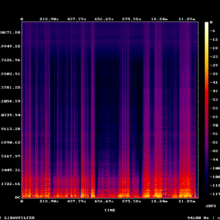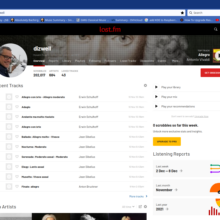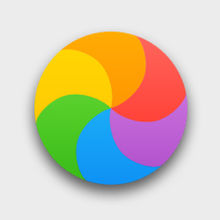Houston, we have a problem... Part 4...
This is the last in my series about how the new Niente Version 3.0 has revealed past cataloguing 'issues' with my music collection. In previous episodes, I've dealt with:
-
-
-
-
- Missing or non-square or too small or too large Album Art
- Inconsistent PERFORMER/ALBUM tags
- Folders with multiple tracks, rather than SuperFLACs
In this one, I'm turning my attention to the problem identified in the Niente Quick Aggregate Statistics report as statistic number 11, "Missing sample rates in filenames". As you can see from this screenshot, I'm missing this data in over 14,600 files (and I've only got 17,656 in the collection, so that's most of them!): [...]
-
-
-
